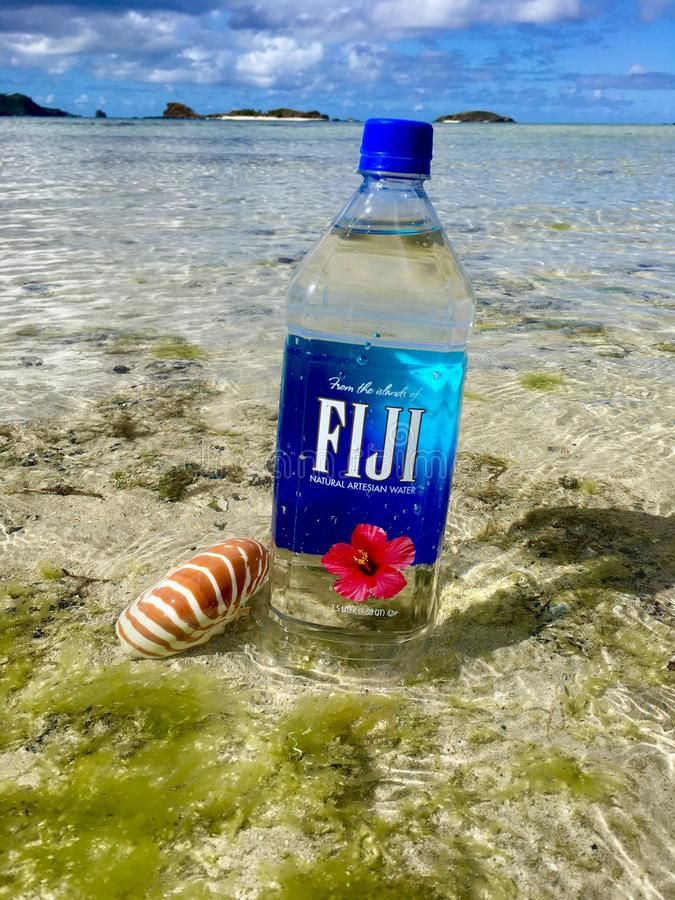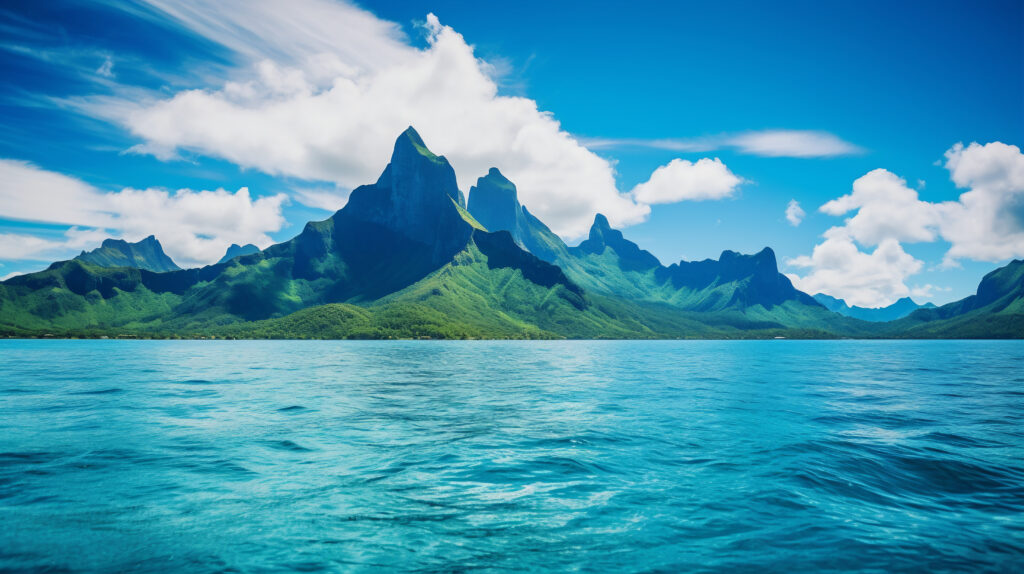Table of Contents

Introduction: Why Is Fiji Water So Expensive?
Fiji Water is one of the priciest brands accessible in a world when bottled water is easily found in every supermarket and small store. However, why is this specific water so expensive? Let’s examine the factors that contribute to Fiji Water’s high pricing.
Purity and Quality
Filtration by Nature
Fiji Water’s natural filtering via volcanic rock in the Yaqara Valley of Fiji accounts for its high cost. Pollutant-free and pure water is maintained by this procedure.
Content of Minerals
Minerals including calcium, magnesium, and silica are abundant in Fiji water, which improves its flavor and has health advantages. Its worth is increased by the immaculate environment, which makes the premium price justified.
Packaging and Branding
Fiji Water’s recognizable square bottles are made from recycled PET plastic as part of their dedication to sustainability. Fiji Water stresses environmental responsibility, which resonates with eco-conscious consumers eager to pay a premium for environmentally friendly products, even when sustainable packaging comes with greater production costs.
High-end branding
Moreover, Fiji Water has used branding and strategic marketing to develop an opulent brand image. Customers that appreciate sophistication and elegance view Fiji Water as a status symbol due to its elegant bottle design and celebrity and influencer endorsements.
Global Distribution
Costs of Logistics and Transportation
Why Is Fiji Water So Expensive? The worldwide distribution network of Fiji Water is another element driving up its price. Significant logistical costs are incurred during the transportation of the water from Fiji to markets worldwide. The complexities of global trade affect Fiji Water’s total cost, which includes import taxes and transportation charges.
Superior Positioning
Additionally, Fiji Water deliberately targets luxury stores and high-end retailers where customers are prepared to pay more for superior goods. Fiji Water further justifies its high price point by getting placement in upmarket hotels, restaurants, and spas, which further solidifies its brand image as a representation of luxury and sophistication.

Cultural and Social Influences
Celebrity Endorsements
Fiji Water boosts its brand appeal through celebrity endorsements, often seen at high-profile events. This link to celebrity culture reinforces its image as an elegant, premium product.
Perception of Prestige
Why Is Fiji Water So Expensive? Fiji Water’s luxury status is rooted in its exotic origins and pristine nature, making it a symbol of exclusivity. Consumers view it as a prestigious item, justifying its higher price.
Competition and Market Dynamics
Positioning Against Competitors
Despite facing stiff competition from other bottled water brands, Fiji Water maintains its premium positioning by emphasizing its unique selling points, such as purity, sustainability, and luxury branding. By differentiating itself from competitors, Fiji Water commands a higher price point in the market.
Market Demand and Supply
Why Is Fiji Water So Expensive? The laws of supply and demand also play a role in determining the price of Fiji Water. As consumer demand for premium bottled water continues to rise, particularly among affluent demographics, Fiji Water can justify its premium pricing based on the perceived value it offers to consumers.
Economic Factors
Exchange Rates and Currency Fluctuations
Economic factors, such as exchange rates and currency fluctuations, can impact the cost of production and distribution for Fiji Water. Fluctuations in currency values can affect the purchasing power of consumers and the profitability of international trade, influencing the final retail price of Fiji Water in different markets.
Production Costs
Why Is Fiji Water So Expensive? The production costs associated with sourcing, bottling, and packaging Fiji Water contribute to its overall price. From maintaining infrastructure in Fiji to investing in sustainable practices, Fiji Water incurs substantial expenses throughout the production process, which are reflected in its retail price.
Environmental Impact
Sustainable Practices
Despite its luxury branding, Fiji Water is committed to minimizing its environmental impact through various sustainability initiatives. From reducing carbon emissions to implementing water conservation measures, Fiji Water strives to balance its commercial interests with environmental stewardship, albeit at a higher cost.
Carbon Footprint
However, critics have raised concerns about the carbon footprint associated with transporting bottled water from Fiji to distant markets. Despite efforts to offset emissions and promote sustainability, the environmental cost of Fiji Water’s global distribution remains a subject of debate and scrutiny.
Consumer Behavior and Psychology
Perceived Value
Ultimately, the high price of Fiji Water is justified by the perceived value it offers to consumers. Through effective marketing and branding strategies, Fiji Water has positioned itself as a premium product worth the investment, appealing to consumers desire for quality, purity, and prestige.
Emotional Connection
Moreover, consumers often form emotional connections with brands that align with their values and aspirations. Whether it’s the allure of exoticism or the promise of purity, Fiji Water taps into consumers’ emotions, fostering loyalty and willingness to pay a premium for its products.
Criticism and Controversies
Environmental Concerns
Despite its popularity, Fiji Water has faced criticism for its environmental practices, particularly regarding the carbon footprint associated with its global distribution. Environmental activists argue that the transportation of bottled water contributes to pollution and climate change, highlighting the need for sustainable alternatives.
Ethical Issues
Furthermore, Fiji Water has been accused of exploiting local resources and communities in Fiji for commercial gain. Critics argue that the company benefits disproportionately from Fiji’s natural water sources, raising questions about equity, sustainability, and corporate responsibility.
Alternatives and Choices
Other Bottled Water Brands
For consumers seeking alternatives to Fiji Water, there are numerous other bottled water brands available on the market, ranging from mainstream options to niche, artisanal offerings. Each brand has its own unique characteristics and selling points, allowing consumers to make informed choices based on their preferences and priorities.
Tap Water vs. Bottled Water
Alternatively, consumers can opt for tap water as a more affordable and environmentally friendly alternative to bottled water. With advances in water treatment technology and stringent safety regulations, tap water in many regions is safe, clean, and readily accessible, offering a sustainable solution to hydration needs.
Future Trends and Predictions
Sustainability Initiatives
Looking ahead, the bottled water industry is likely to witness a growing emphasis on sustainability and environmental responsibility. Companies like Fiji Water will continue to invest in eco-friendly packaging, carbon offset programs, and community partnerships to mitigate their environmental impact and meet consumer expectations.
Consumer Awareness
Moreover, as consumers become increasingly conscious of environmental issues and ethical considerations, brands like Fiji Water will face greater scrutiny and accountability. Transparency, authenticity, and corporate integrity will be key drivers of consumer trust and loyalty in the evolving marketplace.
Conclusion: Why Is Fiji Water So Expensive?
In conclusion, the high price of Fiji Water can be attributed to a combination of factors, including its quality, purity, packaging, branding, global distribution, and consumer perception. While some may balk at the premium price tag, others are willing to pay for the perceived value and prestige associated with Fiji Water. As the bottled water industry continues to evolve, sustainability, ethics, and consumer awareness will shape the future landscape of premium hydration options.
FAQs: Why Is Fiji Water So Expensive?
Is Fiji Water worth the price?
Many believe it’s worth it for the quality, purity, and luxury branding.
Does Fiji Water taste better than other bottled waters?
Taste varies, but many enjoy its smooth, clean flavor due to its mineral content and filtration.
Are there environmental benefits to Fiji Water?
Though it has an environmental footprint, Fiji Water has sustainability efforts in place.
Can I replicate Fiji Water’s taste at home?
You can’t exactly replicate it, but filtration and minerals can improve tap water quality.
Are there alternatives to Fiji Water?
Yes, other premium brands offer similar quality, each with unique traits.